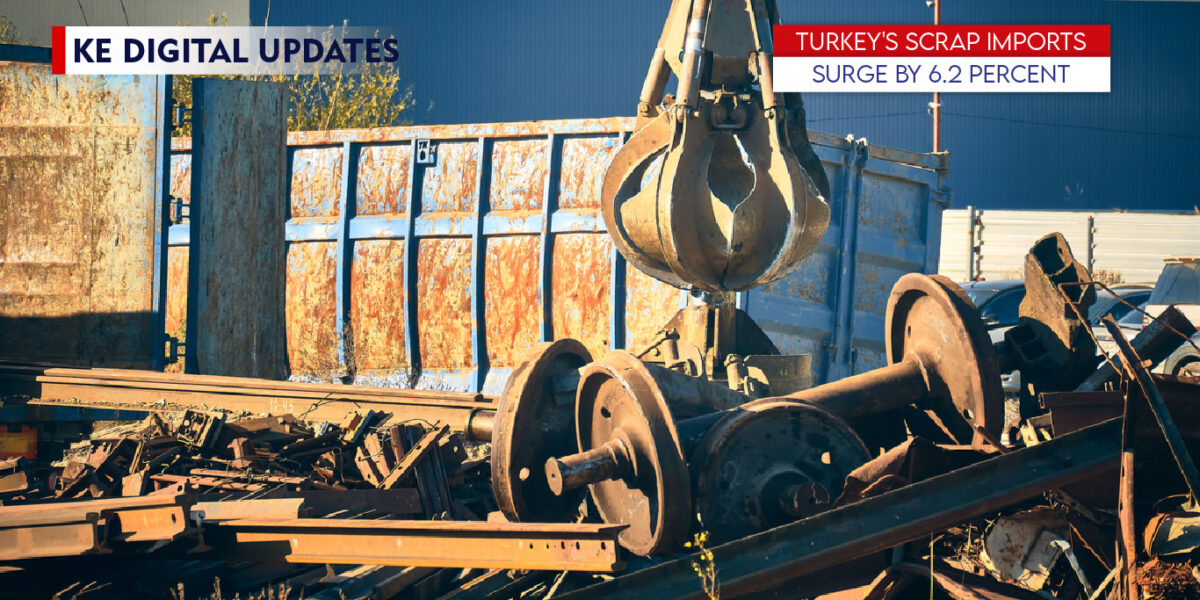Published on January 7, 2025
Turkey’s role as a prominent player in the global scrap market has been reaffirmed by its recent surge in scrap imports. The country imported a substantial 1.76 million metric tons of scrap in November last year, marking a significant 13.3% increase year-over-year and a 19.9% rise month-over-month. This upward trend indicates Turkey’s growing industrial demand and highlights its strategic moves in securing raw materials for its manufacturing sector.
The monetary value of these imports reached a noteworthy $700.44 million in November, showcasing a 16.3% increase compared to the previous year and a 19.1% rise from the previous month. This uptick in value underscores the rising cost and demand for scrap materials in the international market.
Yearly Performance: January to November
Turkey’s scrap imports totaled an impressive 18.18 million metric tons from January to November, reflecting a 6.2% growth compared to the previous year’s period. The total value of these imports escalated by 9.1%, reaching $7.59 billion. This growth trajectory indicates a robust industrial sector and an increasing need for raw materials to support various manufacturing processes.
Top Sources of Scrap Imports
The United States emerged as Turkey’s leading scrap supplier, contributing 4.23 million metric tons, representing a 3.3% increase year-over-year. The strategic import partnership between Turkey and the US has been pivotal in meeting the former’s scrap requirements, given the US’s vast scrap metal production and supply capabilities.
Following the US, the Netherlands supplied 2.53 million metric tons of scrap to Turkey, marking a significant 31.5% increase year-over-year. This notable rise positions the Netherlands as a crucial partner in Turkey’s scrap import strategy, underscoring the importance of European suppliers in the global scrap market.
The United Kingdom also played a vital role, supplying 1.97 million metric tons of scrap, a remarkable 63.3% increase compared to the previous year. The sharp rise from the UK highlights Turkey’s sourcing strategy’s dynamic nature and adaptability to shifts in the global scrap supply landscape.
Implications for Turkey’s Industrial Sector
The substantial increase in scrap imports indicates Turkey’s burgeoning industrial activities. Scrap metal is a critical input for various industries, including construction, automotive, and manufacturing. The import surge aligns with Turkey’s economic goals of boosting production capacity and enhancing industrial output. The increasing value of scrap imports also points to rising costs, which could be attributed to various factors, including global market dynamics, transportation costs, and demand-supply imbalances. As Turkey continues to navigate these challenges, its ability to secure and utilize scrap efficiently will be crucial for maintaining competitiveness in the global market.
Conclusion
Turkey’s 6.2% rise in scrap imports last year reflects its strategic efforts to bolster its industrial sector and secure essential raw materials. With significant contributions from key partners like the US, the Netherlands, and the UK, Turkey is well-positioned to meet its industrial demands and sustain its growth trajectory. As the global market for scrap materials evolves, Turkey’s proactive approach and robust import strategy will play a vital role in shaping its economic landscape.


